
[xyz-ihs snippet="NavigationLinksBlock-Common"]
Gnossienne No. 3
by Erik Satie
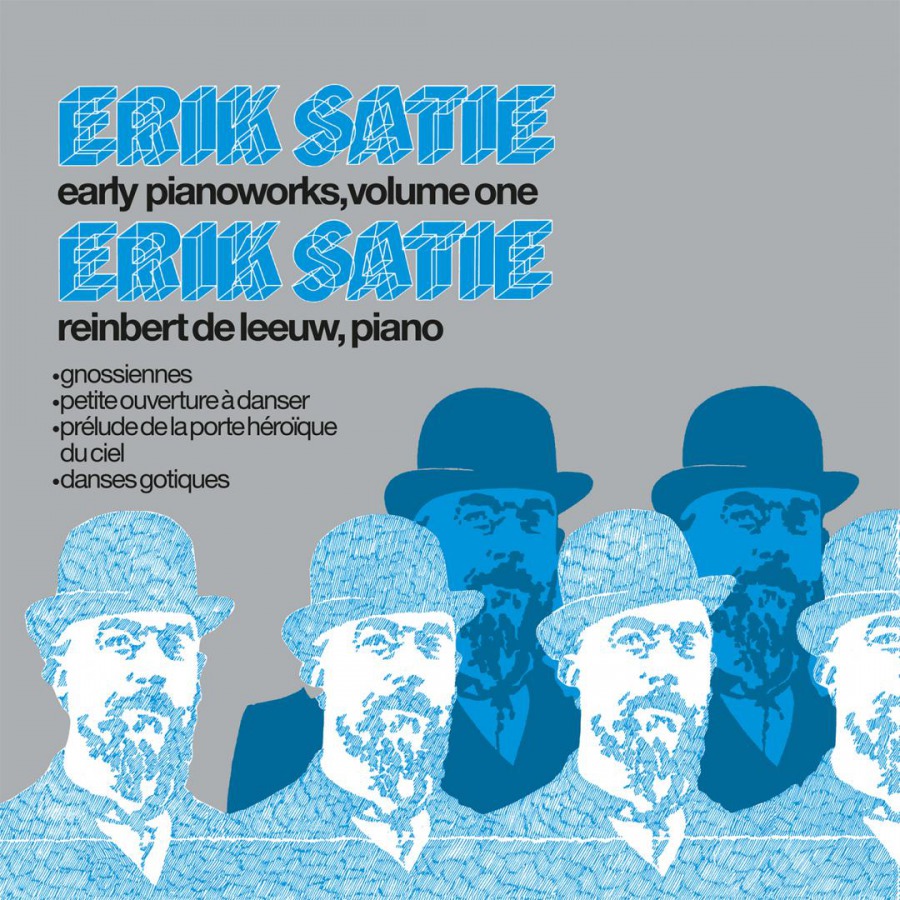
" Gnossienne No. 3 " is one of the Gnossiennes. The Gnossiennes are several piano compositions written by the French composer Erik Satie in the late 19th century. The works are for the most part in free time (lacking time signatures or bar divisions) and highly experimental with form, rhythm and chordal structure. The form as well as the term was invented by Satie. Satie's coining of the word gnossienne was one of the rare occasions when a composer used a new term to indicate a new "type" of composition. Satie used many novel names for his compositions (vexations, croquis et agaceries and so on). Ogive, for example, is the name of an architectural element which was used by Satie as the name for a composition, the Ogives. Gnossienne, however, was a word that did not exist before Satie used it as a title for a composition. The word appears to derive from gnosis. Satie was involved in gnostic sects and movements at the time that he began to compose the Gnossiennes. However, some published versions claim that the word derives from Cretan "knossos" or "gnossus"; this interpretation supports the theory linking the Gnossiennes to the myth of Theseus, Ariadne and the Minotaur. Several archeological sites relating to that theme were famously excavated around the time that Satie composed the Gnossiennes.
[video width="640" height="360" mp4="https://www.easypianoonline.com/wp-content/uploads/2020/12/GnossienneNo3.mp4"]

[xyz-ihs snippet="NavigationLinksBlock-Common"]
Always On My Mind
by Elvis Presley
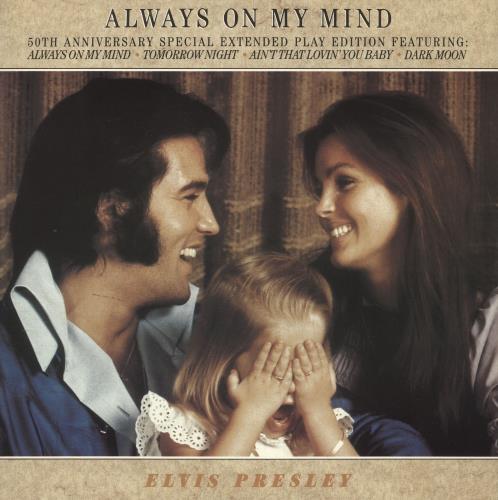
" Always On My Mind " is a ballad song written by Wayne Carson, Johnny Christopher and Mark James. The song has been a crossover hit, charting in both the country and western and pop categories, and AllMusic lists over 300 recorded releases of the song in versions by dozens of performers, including notably Brenda Lee in 1972, Elvis Presley in that same year, John Wesley Ryles in 1979, Willie Nelson's Grammy Award-winning version in 1982 and Pet Shop Boys in 1987.
[video width="640" height="360" mp4="https://www.easypianoonline.com/wp-content/uploads/2020/12/AlwaysOnMyMind.mp4"]
Lyrics
Always On My Mind
Quite as good as I should have
Maybe I didn't love you
Quite as often as I could have
Little things I should have said and done
I just never took the time
You were always on my mind
(You were always on my mind)
You were always on my mind
Maybe I didn't hold you
All those lonely, lonely times
And I guess I never told you
I'm so happy that you're mine
If I make you feel second best
Girl, I'm so sorry I was blind
You were always on my mind
(You were always on my mind)
You were always on my mind
Tell me
Tell me that your sweet love hasn't died
Give me
Give me one more chance
To keep you satisfied, satisfied
Little things I should have said and done
I just never took the time
You were always on my mind
(You were always on my mind)
You were always on my mind
You were always on my mind
Maybe I didn't treat you
Quite as good as I should have
Maybe I didn't love you
Quite as often as I could have
Maybe I didn't hold you
All those lonely, lonely times
And I guess I never told you
I'm so happy that you're mine
Maybe I didn't treat you
Quite as good as I should have
Songwriters: Johnny Christopher / Mark James / Wayne C. Thompson

[xyz-ihs snippet="NavigationLinksBlock-Common"]
You'll Be In My Heart
by Phil Collins

" You’ll Be In My Heart " is a song by Phil Collins, from the 1999 Disney animated feature Tarzan. It appeared on Tarzan: An Original Walt Disney Records Soundtrack as well as various other Disney compilations. A version of the single performed by him with Glenn Close also appears on the soundtrack.
A demo version with Collins playing piano and singing is featured as a bonus on the 2-DVD Special Edition of Tarzan, along with "I Will Follow", "Celebration", "6/8 Demo" and "Rhythm Piece" which became "Strangers Like Me", "Son of Man" and "Trashin' the Camp". "6/8 Demo" was not featured in the movie.
The music video for the song was directed by Kevin Godley. Phil Collins also recorded the song in French ("Toujours dans mon cœur"), German ("Dir gehört mein Herz"), Italian ("Sei dentro me") and Spanish ("En mi corazón vivirás") aside from his native English.
[video width="640" height="360" mp4="https://www.easypianoonline.com/wp-content/uploads/2020/12/YoullBeInMyHeart.mp4"]
Lyrics
You’ll Be In My Heart
It will be alright
Just take my hand
Hold it tight
I will protect you
From all around you
I will be here
Don't you cry
For one so small
You seem so strong
My arms will hold you
Keep you safe and warm
This bond between us
Can't be broken
I will be here
Don't you cry
'Cause you'll be in my heart
Yes, you'll be in my heart
From this day on
Now and forever more
You'll be in my heart
No matter what they say
You'll be here in my heart, always
Why can't they understand the way we feel?
They just don't trust what they can't explain
I know we're different but deep inside us
We're not that different at all
And you'll be in my heart
Yes, you'll be in my heart
From this day on
Now and forever more
Don't listen to them
'Cause what do they know? (What do they know?)
We need each other
To have, to hold
They'll see in time
I know
When destiny calls you
You must be strong (you gotta be strong)
I may not be with you
But you've got to hold on
They'll see in time
I know
We'll show them together
'Cause you'll be in my heart
Believe me you'll be in my heart
I'll be there from this day on
Now and forever more
Ooh, you'll be in my heart (you'll be here in my heart)
No matter what they say (I'll be with you)
You'll be here in my heart (I'll be there), always
Always
I'll be with you
And I'll be there for you always
Always and always
Just look over your shoulder
Just look over your shoulder
Just look over your shoulder
I'll be there always
Songwriters: Phillip David Charles Collins

[xyz-ihs snippet="NavigationLinksBlock-Common"]
Therru's Song
by Hiroko Taniyama
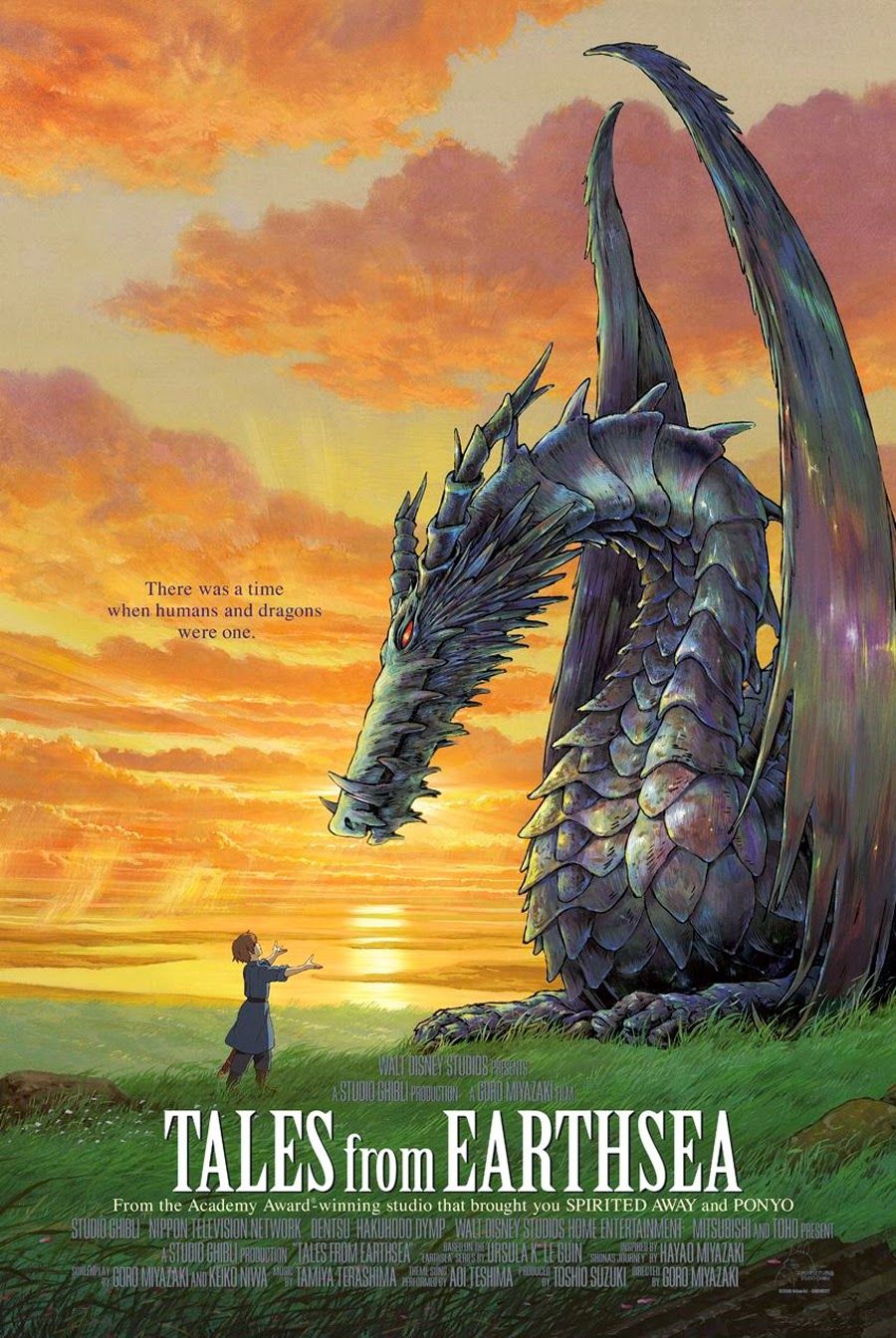
" Therru’s Song " Is a song from the animated movie Tales from Earthsea. Tales from Earthsea (Japanese: ゲド戦記, Hepburn: Gedo Senki, literally "Ged's War Chronicles") is a 2006 Japanese animated fantasy film directed by Gorō Miyazaki, animated by Studio Ghibli for the Nippon Television Network, Dentsu, Hakuhodo DY Media Partners, Walt Disney Studios Home Entertainment, Mitsubishi and Toho, and distributed by the latter company. The film is based on a combination of plot and character elements from the first four books of Ursula K. Le Guin's Earthsea series (A Wizard of Earthsea, The Tombs of Atuan, The Farthest Shore, and Tehanu). The film's title is named from the collection of short stories, Tales from Earthsea, made in 2001. The plot was "entirely different" according to the author Ursula K. Le Guin, who told director Gorō Miyazaki, "It is not my book. It is your movie. It is a good movie", although she later expressed her disappointment with the end result. A film comic adaptation of the film has been published in Japan.
[video width="640" height="360" mp4="https://www.easypianoonline.com/wp-content/uploads/2020/12/TherrusSong.mp4"]
Lyrics
Therru’s Song
(English – Translation)
a falcon flies alone, silent as the sky,
i hear his lonely cry,
never can he rest,
i walk with you along a empty winding road,
we’re far from the ones we love, and never can return,
never can we see again, the countries of our birth,
when will i ever find a place to call my home?
sadness circling like a falcon in the sky,
when will i ever find a way to speak my heart,
to someone who knows, what it is to be alone?
far, far above the clouds against the setting sun,
a falcon flies alone silent as the sky,
i hear his lonely cry, never can he rest,
i long to spread my wings and fly into the light,
open this lonely heart to one who understands,
when will i ever find, a way to speak my heart?
when will i ever find a place to call my home?
sadness and loneliness, a falcon in the sky,
when will i ever find a way to speak my heart,
to someone who knows, what it is to be alone?
Songwriters: Hiroko Taniyama
(Romaji – Original)
Yuuyami semaru kumo no ue
Itsumo ichiwa de tondeiru
Taka wa kitto kanashikarou
Oto mo todaeta kaze no naka
Sora wo tsukanda sono tsubasa
Yasumeru koto wa dekinakute
Kokoro wo nani ni tatoeyou
Taka no youna kono kokoro
Kokoro wo nani ni tatoeyou
Sora wo mau yona samishisa wo
Ame no sobofuru iwakage ni
Itsumo chiisaku saiteiru
Hana wa kitto setsunakarou
Iro mo kasunda ame no naka
Usu momoiro no hanabira wo
Medetekureru te mo nakute
Kokoro wo nani ni tatoeyou
Hana no youna kono kokoro
Kokoro wo nani ni tatoeyou
Ame ni utareru setsunasa wo
Hitokage taeta no no michi wo
Watashi to tomo ni ayunderu
Anata mo kitto samishikarou
Mushi no sasayaku kusahara wo
Tomo ni michiyuku hito dakedo
Taete monoiu koto mo naku
Kokoro wo nani ni tatoeyou
Hitori michiyuku kono kokoro
Kokoro wo nani ni tatoeyou
Hitoribocchi no samishisa wo
Songwriters: Hiroko Taniyama

[xyz-ihs snippet="NavigationLinksBlock-Common"]
Loch Lomond
(Scottish Traditional)
<
" Loch Lomond " is a well-known traditional Scottish song (Roud No. 9598) first published in 1841 in Vocal Melodies of Scotland. The song prominently features Loch Lomond, the largest Scottish loch, located between the council areas of West Dunbartonshire, Stirling and Argyll and Bute. In Scots, "bonnie" means "pretty", often in reference to a female.The original composer is unknown, as is definitive information on any traditional lyrics.
[video width="640" height="360" mp4="https://www.easypianoonline.com/wp-content/uploads/2020/12/LochLomond.mp4"]
Lyrics
Loch Lomond
Where the sun shines bright on Loch Lomond
Where we two have passed so many blithesome days
On the bonnie, bonnie banks of Loch Lomond
O ye'll take the high road and I'll take the low road
And I'll be in Scotland afore ye
But me and my true love will never meet again
On the bonnie, bonnie banks of Loch Lomond
I mind where we parted on yon shady glen
On the steep, steep side o' Ben Lomond
Where in purple hue, the Heiland hills we view
And the moon shinin' out from the gloamin'
O ye'll take the high road and I'll take the low road
And I'll be in Scotland afore ye
But me and my true love will never meet again
On the bonnie, bonnie banks of Loch Lomond
The wee bird may sing and the wild flowers spring
And in sunshine the waters are sleeping:
The broken heart will ken nae second spring again
And the world does not know how we're grievin'
O ye'll take the high road and I'll take the low road
And I'll be in Scotland afore ye
But me and my true love will never meet again
On the bonnie, bonnie banks of Loch Lomond
Songwriters: Traditional

[xyz-ihs snippet="NavigationLinksBlock-Common"]
Kyrie Eleison (Mass No.12)
by Mozart
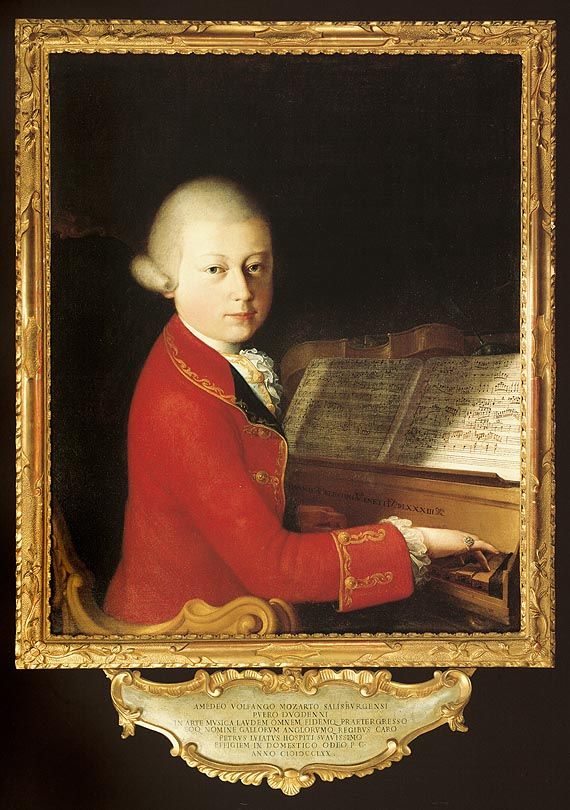
" Kyrie Eleison " is a section of Mozart's Twelfth Mass, a commonly used title for a setting of the mass formerly attributed to Wolfgang Amadeus Mozart. Under this title, which was given to it by an English publisher, the piece attained great popularity in the 19th century and contributed to Mozart’s reputation. Today the piece is generally attributed to Wenzel Müller. The key signature of the mass is G major, although apart from the opening Kyrie the mass appears to be in C. This suggests that it may be put together from movements not originally intended for the same composition, maybe even from different composers.
Köchel rejected the attribution to Mozart in the Anhang (appendix) of the first edition of his catalogue of Mozart's works, there listed as K. Anh. 232, and in later editions as K. Anh. C1.04.
[video width="640" height="360" mp4="https://www.easypianoonline.com/wp-content/uploads/2020/12/KyrieEleison.mp4"]

[xyz-ihs snippet="NavigationLinksBlock-Common"]
Gnossienne No.1
by Erik Satie
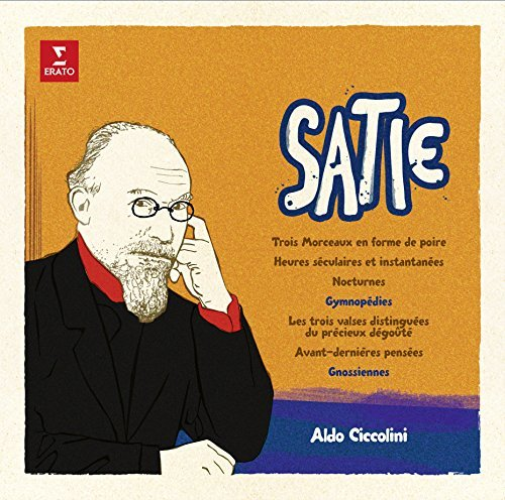
" Gnossienne No.1 " is one of the Gnossiennes. The Gnossiennes are several piano compositions written by the French composer Erik Satie in the late 19th century. The works are for the most part in free time (lacking time signatures or bar divisions) and highly experimental with form, rhythm and chordal structure. The form as well as the term was invented by Satie. Satie's coining of the word gnossienne was one of the rare occasions when a composer used a new term to indicate a new "type" of composition. Satie used many novel names for his compositions (vexations, croquis et agaceries and so on). Ogive, for example, is the name of an architectural element which was used by Satie as the name for a composition, the Ogives. Gnossienne, however, was a word that did not exist before Satie used it as a title for a composition. The word appears to derive from gnosis. Satie was involved in gnostic sects and movements at the time that he began to compose the Gnossiennes. However, some published versions claim that the word derives from Cretan "knossos" or "gnossus"; this interpretation supports the theory linking the Gnossiennes to the myth of Theseus, Ariadne and the Minotaur. Several archeological sites relating to that theme were famously excavated around the time that Satie composed the Gnossiennes.
[video width="640" height="360" mp4="https://www.easypianoonline.com/wp-content/uploads/2020/12/GnossienneNo1.mp4"]

[xyz-ihs snippet="NavigationLinksBlock-Common"]
Beyond The Sea
by Charles Trenet
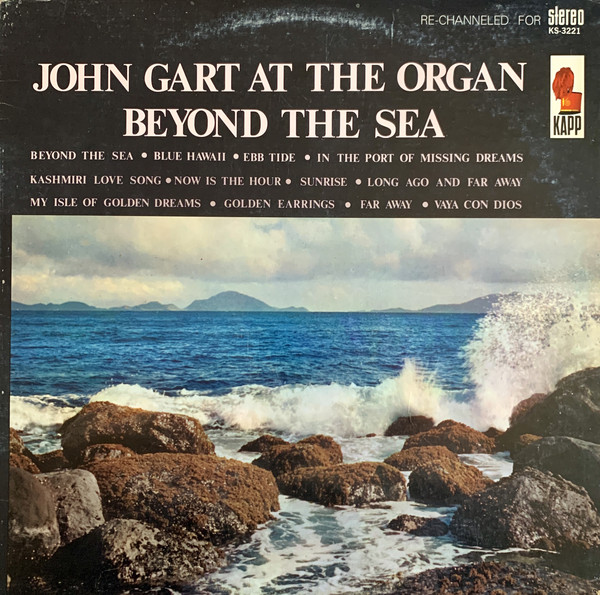
" Beyond The Sea " is a 1945 contemporary pop romantic love song by Jack Lawrence, with music taken from the song "La Mer" by Charles Trenet.Trenet had composed "La Mer" (which means "the Sea") with French lyrics. It had some differences to the English-language version that Lawrence later wrote. Trenet's French version was a homage and ode to the changing moods of the sea, while Lawrence, by just adding one word "Beyond" to the title, gave him the start whereby he made the song into a love song.
English version[video width="640" height="360" mp4="https://www.easypianoonline.com/wp-content/uploads/2020/12/BeyondTheSea.mp4"]
French version[video width="640" height="360" mp4="https://www.easypianoonline.com/wp-content/uploads/2020/12/LaMer-FrenchBeyondTheSea.mp4"]
Lyrics
Beyond The Sea
(English version)
Somewhere waiting for me
My lover stands on golden sands
And watches the ships that go sailing
Somewhere beyond the sea
She's there watching for me
If I could fly like birds on high
Then straight to her arms I'd go sailing
It's far beyond a star
It's near beyond the moon
I know beyond a doubt
My heart will lead me there soon
We'll meet beyond the shore
We'll kiss just like before
Happy we'll be beyond the sea
And never again I'll go sailing
I know beyond a doubt
My heart will lead me there soon
And we'll meet, I know we'll meet beyond the shore
We'll kiss just as before
Happy we'll be beyond the sea
And never again I'll go sailing
No more sailing
So long, sailing, sailing, sailing
Goodbye, farewell, my friend, no more sailing
So long, sailing, no more sailing
No more, farewell
Auf Wiedersehen to you
No more sailing
No more
Oh, no more sailing
No more, no more
No more sailing
No more, one more time
No more sailing
Songwriters: Charles Trenet / Jack Lawrence
La Mer
(French – Original)
La mer
Qu'on voit danser le long des golfes clairs
A des reflets d'argent
La mer
Des reflets changeants
Sous la pluie
La mer
Au ciel d'été confond
Ses blancs moutons
Avec les anges si purs
La mer
Bergère d'azur
Infinie
Voyez
Près des étangs
Ces grands roseaux mouillés
Voyez
Ces oiseaux blancs
Et ces maisons rouillées
La mer
Les a bercés
Le long des golfes clairs
Et d'une chanson d'amour
La mer
A bercé mon cœur pour la vie
La mer
Qu'on voit danser le long des golfes clairs
A des reflets d'argent
La mer
Des reflets changeants
Sous la pluie
La mer
Au ciel d'été confond
Ses blancs moutons
Avec les anges si purs
La mer
Bergère d'azur
Infinie
Voyez (voyez)
Près des étangs (près des étangs)
Des grands roseaux mouillés (voyez des roseaux)
Voyez (voyez)
Ces oiseaux blancs (ces oiseaux blancs)
Et ces maisons rouillées
La mer
Les a bercés
Le long des golfes clairs
Et d'une chanson d'amour
La mer
A bercé mon cœur pour la vie
Songwriters: Charles Trenet

[xyz-ihs snippet="NavigationLinksBlock-1"]
Blue Christmas
by Billy Hayes and Jay Johnson
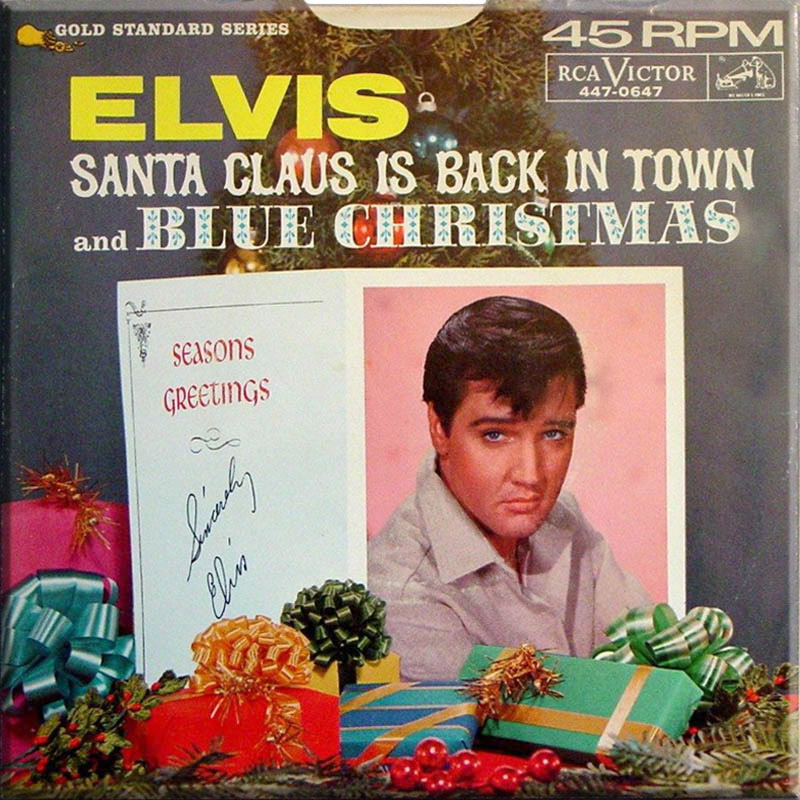
" Blue Christmas " is a Christmas song written by Billy Hayes and Jay W. Johnson and most famously performed by Elvis Presley; it was first recorded by Doye O'Dell in 1948. It is a tale of unrequited love during the holidays and is a longstanding staple of Christmas music, especially in the country genre.
[video width="640" height="360" mp4="https://www.easypianoonline.com/wp-content/uploads/2020/12/BlueChristmas.mp4"]
Lyrics
Blue Christmas
I'll be so blue just thinking about you
Decorations of red on a green Christmas tree
Won't be the same, dear, if you're not here with me
And when those blue snowflakes start falling
That's when those blue memories start calling
You'll be doin' all right with your Christmas of white
But I'll have a blue, blue, blue, blue Christmas
You'll be doin' all right with your Christmas of white
But I'll have a blue, blue, blue, blue Christmas
Songwriters: Johnson Jay W / Hayes Billy

[xyz-ihs snippet="NavigationLinksBlock-1"]
Away In A Manger
by James Ramsey Murray
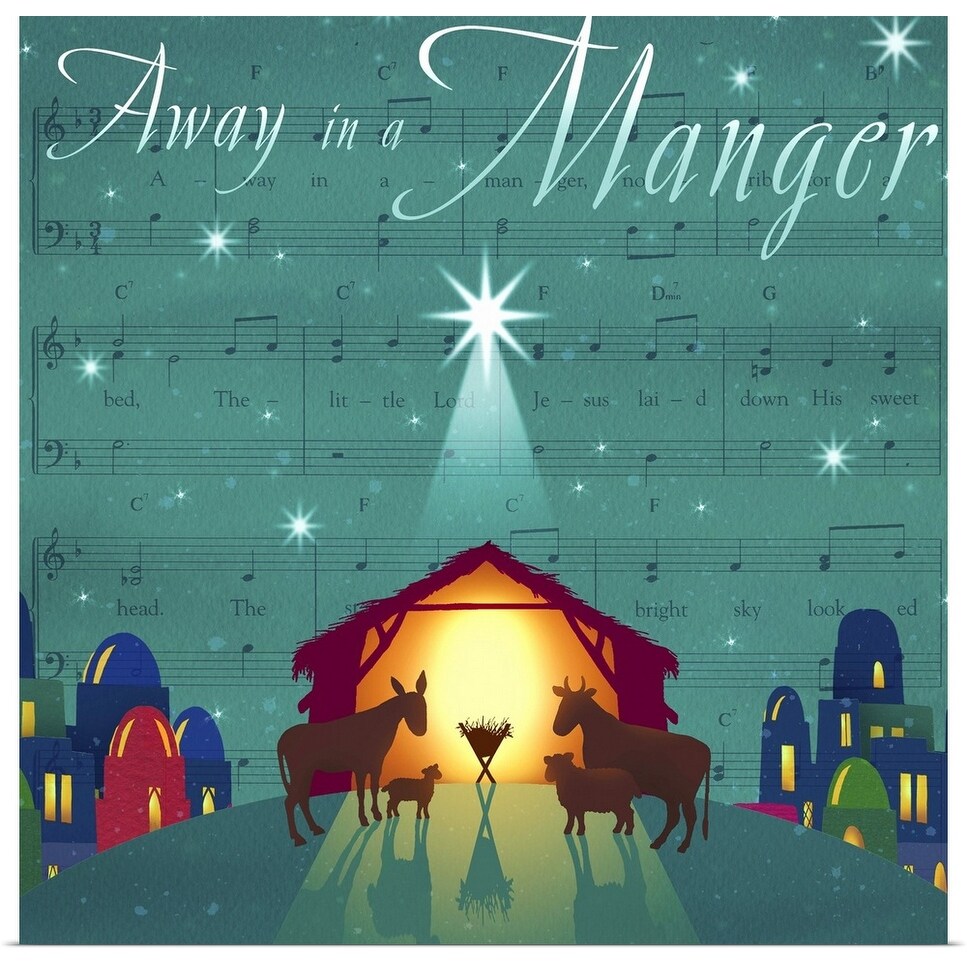
" Away In A Manger " is a Christmas carol first published in the late nineteenth century and used widely throughout the English-speaking world. In Britain, it is one of the most popular carols; a 1996 Gallup Poll ranked it joint second. Although it was long claimed to be the work of German religious reformer Martin Luther, the carol is now thought to be wholly American in origin.] The two most-common musical settings are by William J. Kirkpatrick (1895) and James Ramsey Murray (1887).
[video width="640" height="360" mp4="https://www.easypianoonline.com/wp-content/uploads/2020/12/AwayInAManger.mp4"]
Lyrics
Away In A Manger
No crib for His bed
The little Lord Jesus
Lay down His sweet head
The stars in the sky
Look down where He lay
The little Lord Jesus
Asleep on the hay
The cattle are lowing
The poor Baby wakes
But little Lord Jesus
No crying He makes
I love Thee, Lord Jesus
Look down from the sky
And stay by my side
'Til morning is nigh
Be near me, Lord Jesus
I ask Thee to stay
Close by me forever
And love me, I pray
Bless all the dear children
In Thy tender care
And take us to Heaven
To live with Thee there
Songwriters: James Ramsey Murray

[xyz-ihs snippet="NavigationLinksBlock-1"]
Auld Lang Syne
(Scottish Traditional)
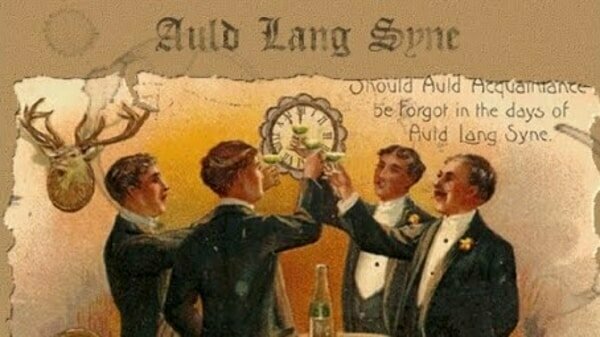
" Auld Lang Syne " is a Scots-language poem written by Robert Burns in 1788 and set to the tune of a traditional folk song (Roud # 6294). It is well known in many countries, especially in the English-speaking world, its traditional use being to bid farewell to the old year at the stroke of midnight on New Year's Eve. By extension, it is also sung at funerals, graduations, and as a farewell or ending to other occasions. The international Scouting movement in many countries uses it to close jamborees and other functions.
The poem's Scots title may be translated into standard English as "old long since" or, less literally, "long long ago", "days gone by", or "old times". Consequently, "For auld lang syne", as it appears in the first line of the chorus, might be loosely translated as "for the sake of old times". Singing the song on Hogmanay or New Year's Eve very quickly became a Scots custom that soon spread to other parts of the British Isles. As Scots (not to mention English, Welsh and Irish people) emigrated around the world, they took the song with them.
[video width="640" height="360" mp4="https://www.easypianoonline.com/wp-content/uploads/2020/12/AuldLangSyne.mp4"]
Lyrics
Auld Lang Syne
(For Old Times’ Sake)
And never brought to mind?
Should auld acquaintance be forgot
And days of auld lang syne?
For auld lang syne, my dear
For auld lang syne
We'll tak a cup o' kindness yet
For days of auld lang syne
We twa hae run about the braes
And pu'd the gowans fine
But we've wander'd mony a weary fit
Sin days of auld lang syne
We twa hae paidl'd i' the burn
Frae morning sun till dine
But seas between us braid hae roar'd
Sin days of auld lang syne
For auld lang syne, my dear
For auld lang syne
We'll tak a cup o' kindness yet
For days of auld lang syne
And surely ye'll be your pint-stowp
And surely I'll be mine
And we'll tak a cup o' kindness yet
For auld lang syne
And there's a hand, my trusty fiere
And gie's a hand o' thine
And we'll tak a right gude-willy waught
For auld lang syne
For auld lang syne, my dear
For auld lang syne
We'll tak a cup o' kindness yet
For auld lang syne
For auld lang syne, my dear
For auld lang syne
We'll tak a cup o' kindness yet
For auld lang syne
Songwriters: Scottish Traditional / Robert Burns

[xyz-ihs snippet="NavigationLinksBlock-1"]
The First Noel
(English Traditional)
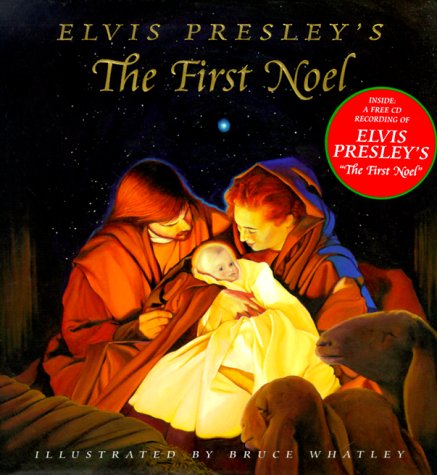
" The First Noel " is a traditional English Christmas carol with Cornish origins, most likely from the early modern period, although possibly earlier. It is listed as number 682 in the Roud Folk Song Index. "The First Nowell" is of Cornish origin. Its current form was first published in Carols Ancient and Modern (1823) and Gilbert and Sandys Carols (1833), both of which were edited by William Sandys and arranged, edited and with extra lyrics written by Davies Gilbert for Hymns and Carols of God.
[video width="640" height="360" mp4="https://www.easypianoonline.com/wp-content/uploads/2020/12/TheFirstNoel.mp4"]
Lyrics
The First Noel
Noel, Noel
The First Noel, the Angels did say
Was to certain poor shepherds in fields as they lay
In fields where they lay keeping their sheep
On a cold winter's night that was so deep
Noel, Noel, Noel, Noel
Born is the King of Israel!
Noel, Noel
Noel, Noel
They looked up and saw a star
Shining in the East beyond them far
And to the earth it gave great light
And so it continued both day and night
Noel, Noel
Noel, Noel
Noel, Noel
Noel, Noel
Noel, Noel
Noel, Noel
Born is the King of Israel!
Noel, Noel, Noel, Noel
Born is the King of Israel!
Born is the King of Israel!
Noel, Noel
Noel, Noel
Songwriters: Traditional

[xyz-ihs snippet="NavigationLinksBlock-1"]
O Christmas Tree
(O Tannenbaum)
German Traditional
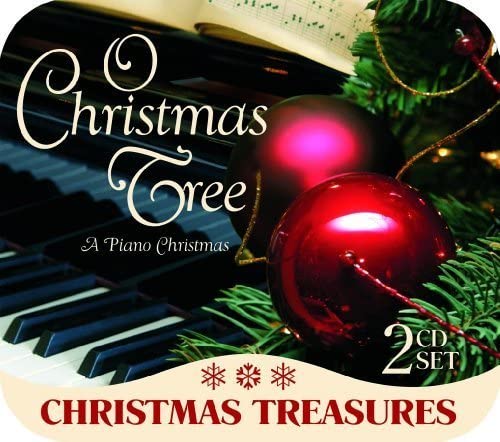
" O Christmas Tree" (German: O Tannenbaum) is a German Christmas song. Based on a traditional folk song which was unrelated to Christmas, it became associated with the traditional Christmas tree by the middle of the 19th century and sung as a Christmas carol. The modern lyrics were written in 1824, by the Leipzig organist, teacher and composer Ernst Anschütz. A Tannenbaum is a fir tree. The lyrics do not actually refer to Christmas, or describe a decorated Christmas tree. Instead, they refer to the fir's evergreen quality as a symbol of constancy and faithfulness through the cold German winters.
[video width="640" height="360" mp4="https://www.easypianoonline.com/wp-content/uploads/2020/12/OChristmasTree.mp4"]
Lyrics
(English – Translation)
O Christmas tree, o Christmas tree
Thy leaves are so unchanging
O Christmas tree, o Christmas tree
Thy leaves are so unchanging
Not only green when summer's here
But also when it's cold and drear
O Christmas tree, o Christmas tree
Thy leaves are so unchanging
O Christmas tree, o Christmas tree
Such pleasure do you bring me
O Christmas tree, o Christmas tree
Such pleasure do you bring me
For every year this Christmas tree
Brings to us such joy and glee
O Christmas tree, o Christmas tree
Such pleasure do you bring me
O Christmas tree, o Christmas tree
You'll ever be unchanging
A symbol of goodwill and love
You'll ever be unchanging
Each shining light, each silver bell
No one alive spreads cheer so well
O Christmas tree, o Christmas tree
You'll ever be unchanging
Songwriters: German Traditional / Ernst Anschütz
O Tannenbaum
(German – Original)
O Tannenbaum, o Tannenbaum,
Wie treu sind deine Blätter!
Du grünst nicht nur zur Sommerzeit,
Nein, auch im Winter, wenn es schneit.
O Tannenbaum, o Tannenbaum,
Wie treu sind deine Blätter!
O Tannenbaum, o Tannenbaum,
Du kannst mir sehr gefallen!
Wie oft hat nicht zur Weihnachtszeit
Ein Baum von dir mich hoch erfreut!
O Tannenbaum, o Tannenbaum,
Du kannst mir sehr gefallen!
O Tannenbaum, o Tannenbaum,
Dein Kleid will mich was lehren:
Die Hoffnung und Beständigkeit
Gibt Mut und Kraft zu jeder Zeit!
O Tannenbaum, o Tannenbaum,
Dein Kleid will mich was lehren!
Songwriters: German Traditional / Ernst Anschütz

[xyz-ihs snippet="NavigationLinksBlock-1"]
O Come, All Ye Faithful
by John Francis Wade
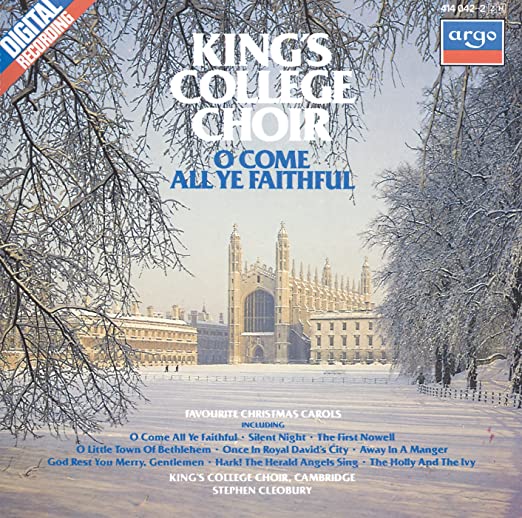
" O Come, All Ye Faithful " (originally written in Latin as Adeste Fideles) is a Christmas carol that has been attributed to various authors, including John Francis Wade (1711–1786), John Reading (1645–1692), King John IV of Portugal (1604–1656), and anonymous Cistercian monks. The earliest printed version is in a book published by Wade, but the earliest manuscript bears the name of King John IV, and is located in the library of the Ducal Palace of Vila Viçosa. A manuscript by Wade, dating to 1751, is held by Stonyhurst College in Lancashire.
The original four verses of the hymn were extended to a total of eight, and these have been translated into many languages. The English translation of "O Come, All Ye Faithful" by the English Catholic priest Frederick Oakeley, written in 1841, is widespread in most English-speaking countries.
[video width="640" height="360" mp4="https://www.easypianoonline.com/wp-content/uploads/2020/11/OComeAllYeFaithful.mp4"]
Lyrics
(English – Translation)
O come, all ye faithful, joyful and triumphant!
O come ye, O come ye, to Bethlehem
Come and behold Him
Born the King of Angels
O come, let us adore Him
O come, let us adore Him
O come, let us adore Him
Christ the Lord!
God of God, Light of Light
Lo, He abhors not the Virgin's womb
Very God
Begotten, not created
O come, let us adore Him
O come, let us adore Him
O come, let us adore Him
Christ the Lord!
Sing, choirs of angels, sing in exultation
Sing, all ye citizens of heaven above!
Glory to God
All glory in the highest
O come, let us adore Him
O come, let us adore Him
O come, let us adore Him
Christ the Lord!
Yea, Lord, we greet Thee, born this happy morning
Jesus, to Thee be glory given
Word of the Father
Now in flesh appearing
O come, let us adore Him
O come, let us adore Him
O come, let us adore Him
Christ the Lord!
Songwriters: John Francis Wade
Adeste Fideles
(Latin – Original)
Adeste fideles laeti triumphantes
Venite, venite in Bethlehem
Natum videte regem angelorum
Venite, adoremus,
Venite, adoremus,
Venite, adoremus, dominum!
Deum de Deo, lumen de lumine,
Gestant puellae viscera
Deum verum, genitum non factum.
Venite, adoremus,
Venite, adoremus,
Venite, adoremus, dominum!
Gloria in excelsis Deo!
Venite, adoremus,
Venite, adoremus,
Venite, adoremus, dominum!
Songwriters: John Francis Wade

[xyz-ihs snippet="NavigationLinksBlock-Common"]
Gravity Falls Theme
by Brad Breeck
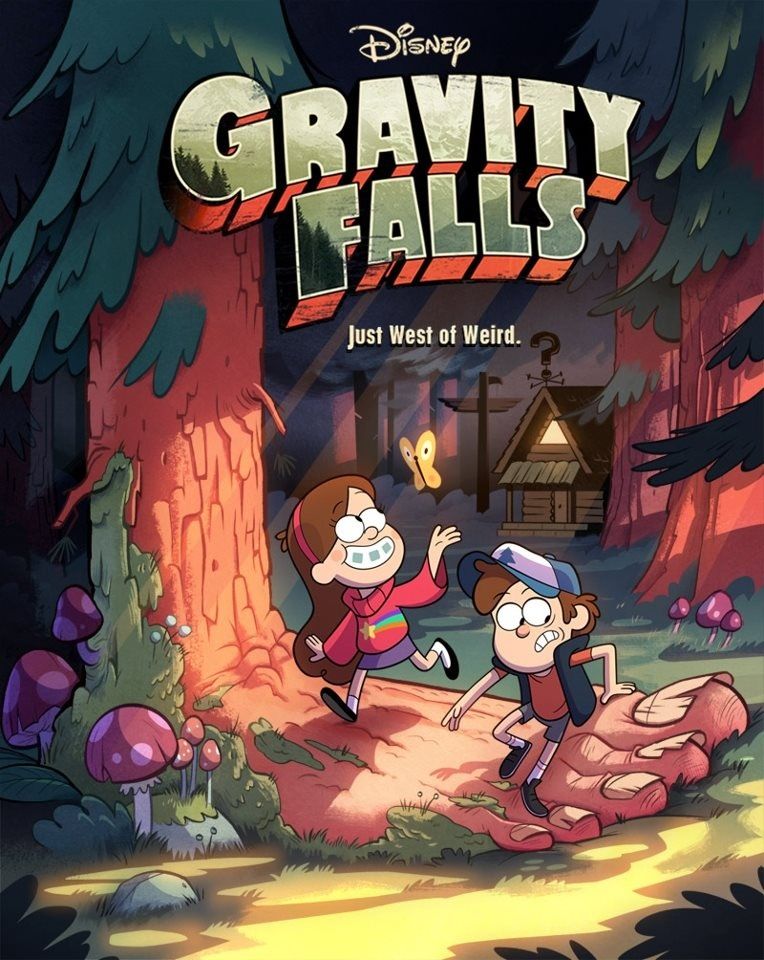
" Gravity Falls " is an American animated mystery comedy television series created by Alex Hirsch for Disney Channel and Disney XD. The series ran from June 15, 2012, to February 15, 2016.
The series follows the adventures of Dipper Pines (voiced by Jason Ritter) and his twin sister Mabel (voiced by Kristen Schaal) who are sent to spend the summer with their great-uncle (or "Grunkle") Stan (voiced by Hirsch) in Gravity Falls, Oregon, a mysterious town full of paranormal forces and supernatural creatures. The kids help Stan run "the Mystery Shack", the tourist trap which he owns, while also investigating the local mysteries.
On November 20, 2015, Hirsch announced that the series would finish with its second season, stating that this was "100% [his] choice" and that "the show isn't being cancelled- it's being finished" and was simply reaching its natural conclusion. The show culminated with a one-hour finale, "Weirdmageddon 3: Take Back The Falls", airing on February 15, 2016. Hirsch later stated that he remains open to continuing the series with additional episodes or specials.
[video width="640" height="360" mp4="https://www.easypianoonline.com/wp-content/uploads/2020/11/GravityFallsTheme.mp4"]







































